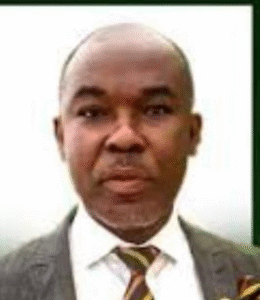Cedi Stability: Financial Analyst Prince Obiri Yeboah Calls for Independent Probe Into Currency Gains
 Chartered banker and financial analyst Prince Obiri Yeboah has urged the government to commission an independent investigation into the recent surge in the Ghanaian cedi’s value against major foreign currencies, particularly the U.S. dollar. According to him, understanding the underlying causes of the cedi’s gains is crucial and should not be politicised.
Chartered banker and financial analyst Prince Obiri Yeboah has urged the government to commission an independent investigation into the recent surge in the Ghanaian cedi’s value against major foreign currencies, particularly the U.S. dollar. According to him, understanding the underlying causes of the cedi’s gains is crucial and should not be politicised.
Speaking in an interview on Frontline on Rainbow Radio 87.5FM monitored by mrwoode.com , Prince Obiri Yeboah emphasized the importance of allowing development economists and a new generation of neutral and trained economic experts to study and present their findings on the matter. He believes this approach will ensure transparency and prevent politicians from exploiting the situation for political mileage.
The gains should not be politicised. Let’s allow independent economists to investigate and explain what’s really happening. We need to make the findings public to guide policy and enhance economic understanding, he stated.
Prince Obiri pointed to three primary factors he believes are driving the recent stability of the cedi:
1. Change in Government:
He asserted that the transition of power often inspires renewed confidence in the economy. This, he said, is not a new phenomenon. Citing historical patterns, he referenced the early years of former presidents like John Kufuor and the late Prof. Atta Mills, when the cedi experienced similar stability after changes in leadership.
“It’s a cycle we’ve seen over the years. In 2017, we saw it when Dr. Bawumia humorously said the cedi had been arrested and locked up. That shows how confidence can impact currency performance, he said.
2. Release of Hoarded Funds by Former Appointees:
Prince Obiri explained that former government officials often hoard large sums of money during their tenure, partly due to public scrutiny and a desire to maintain a low profile. Once they exit government, however, they begin to spend or invest these funds, releasing liquidity into the economy and indirectly supporting the cedi.
He referenced the Cecilia Dapaah scandal as an example, stating, “That was just one case. There are many more who keep money at home and only release it post-office. This spending cycle impacts the economy.
3. Return of Former Officials to Private Business:
Obiri Yeboah also noted that former public office holders often return to private enterprises after leaving office, injecting their accumulated resources into businesses. This increased investment activity, in turn, stimulates economic activity and boosts confidence in the financial system.
Additionally, he highlighted how political entrepreneurs, individuals who align their businesses with ruling parties, also influence economic dynamics. He observed that these entrepreneurs may initially support opposition parties, only to benefit from government contracts or economic incentives once power changes hands.
“These political entrepreneurs wait to see which party wins and quickly align themselves with the new administration, boosting investments and project execution. That too plays into the confidence cycle,” he said.
Call for Transparency and Economic Reform
Prince Obiri Yeboah’s recommendations aim to depoliticise economic discourse in Ghana and ensure that currency gains are backed by data-driven insights rather than assumptions or partisan narratives. He insists that understanding the real forces behind the cedi’s performance is crucial for sustained economic stability.
“Let’s investigate this pattern scientifically. We need facts not politics so that future policies are grounded in reality, he concluded.
As Ghana continues to navigate its economic challenges, such calls for transparency and independent evaluation may offer a path toward more responsible fiscal management and long-term currency stability.
